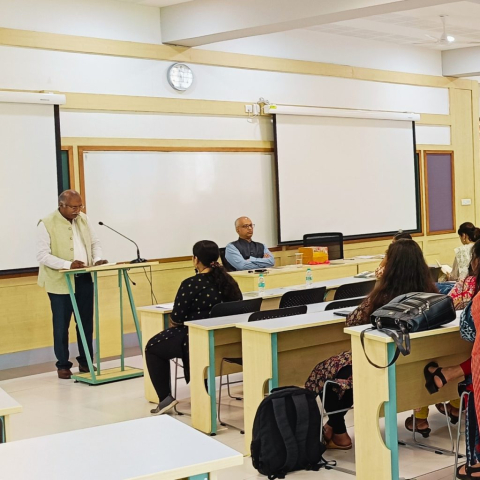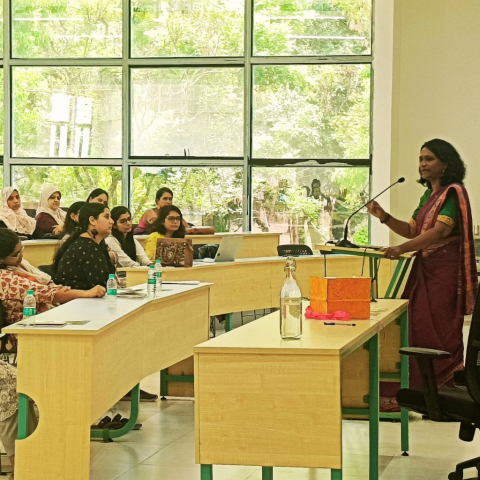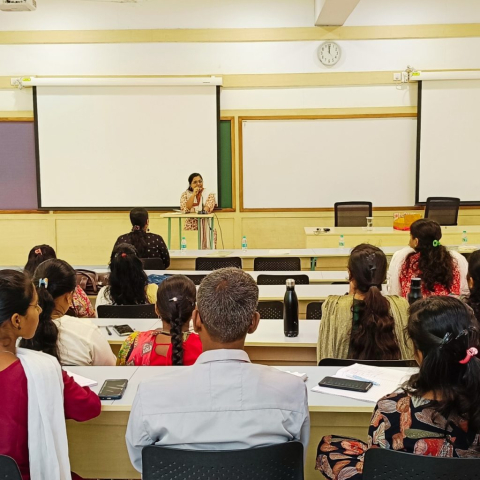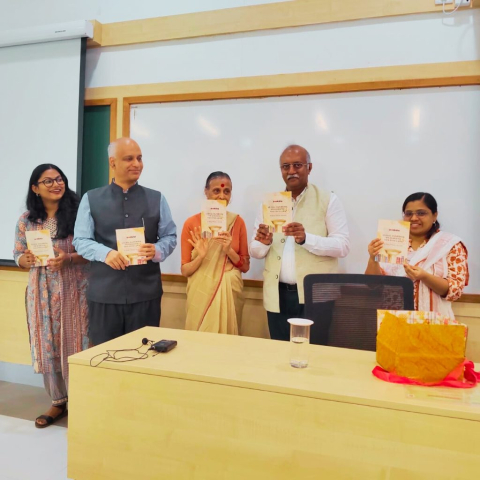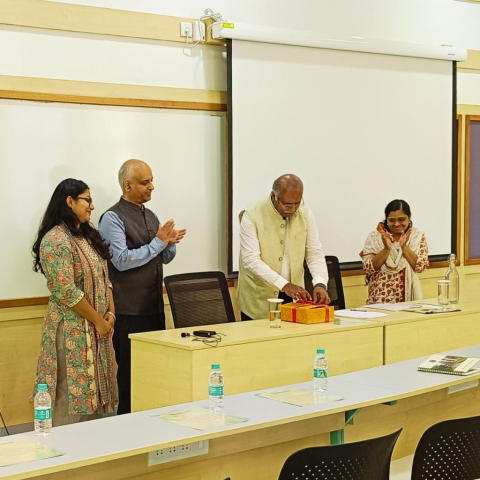Release of ‘A Legal Handbook on Domestic Violence Laws: A Practical Guide’ | By Centre for Women and the Law and Aweksha
New Academic Block, Room 201
Saturday, April 5, 2025, 11:00 am
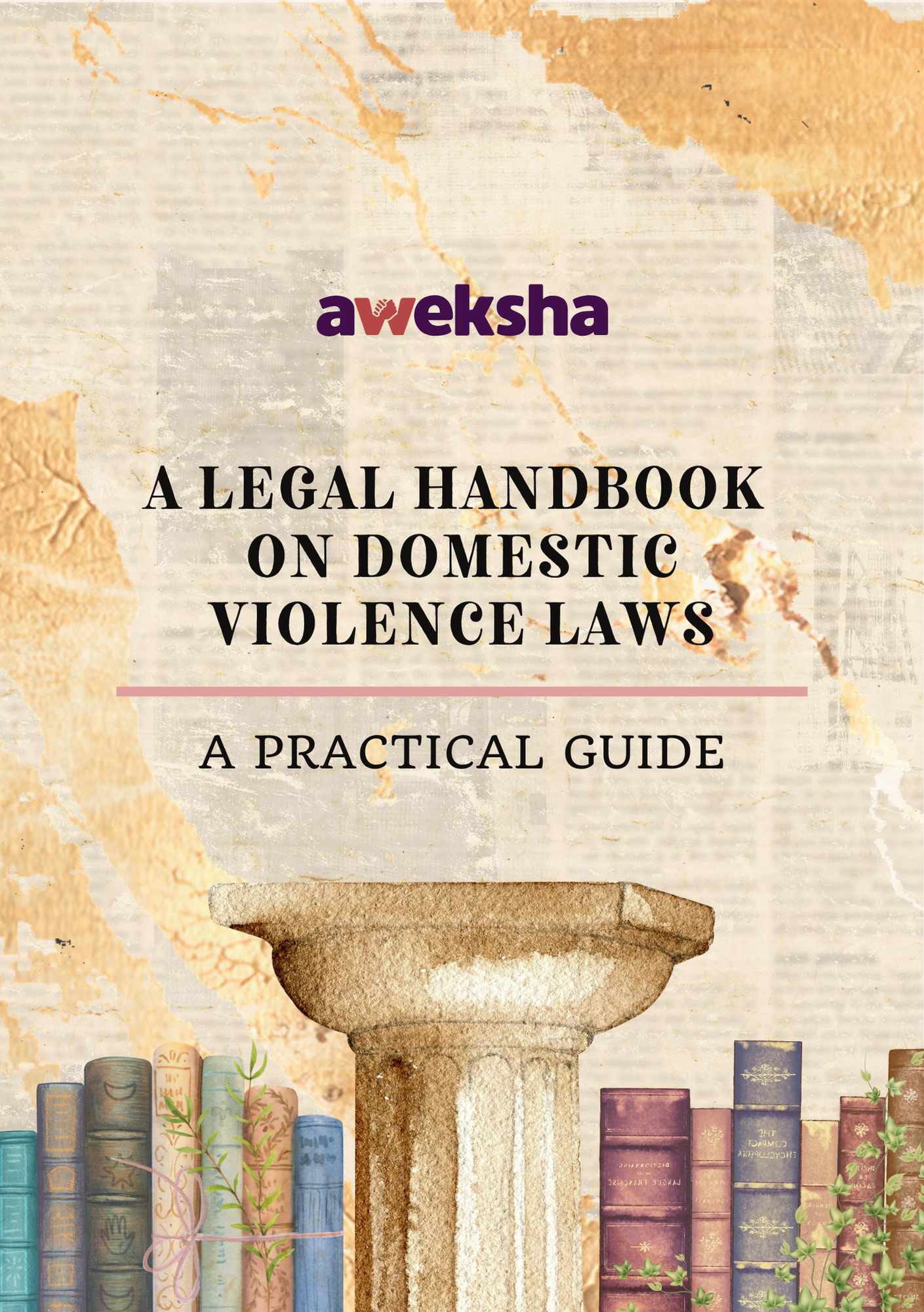 The Centre for Women and the Law (CWL), along with Aweksha, is organising a release event of ‘A Legal Handbook on Domestic Violence Laws: A Practical Guide,’ at the NLS campus on Saturday, April 5, 2025. The handbook will be released by Hon’ble Mr. Justice S. Sunil Dutt Yadav, High Court of Karnataka, Bengaluru.
The Centre for Women and the Law (CWL), along with Aweksha, is organising a release event of ‘A Legal Handbook on Domestic Violence Laws: A Practical Guide,’ at the NLS campus on Saturday, April 5, 2025. The handbook will be released by Hon’ble Mr. Justice S. Sunil Dutt Yadav, High Court of Karnataka, Bengaluru.
Please note: Guest entry for the event will be restricted to Gate 3. If you are interested in attending the release, please RSVP here.
About the Handbook
This handbook draws from four decades of experience in supporting survivors of gender-based violence, particularly domestic violence. While legal reforms have criminalized domestic abuse and provided protective measures, many women still face challenges in accessing justice due to a lack of information and legal literacy.
Despite legal advancements, many women still struggle to navigate the justice system. This handbook bridges that gap by simplifying legal processes, explaining complaint procedures, and outlining key legal provisions. It offers step-by-step guidance on documentation, civil and criminal matrimonial laws, and essential safety measures. Designed as a practical tool, the handbook aims to transform legal awareness into action, empowering women with the knowledge needed to access justice effectively.
About Aweksha
 Aweksha (Sanskrit for “Care”) is a Bengaluru-based women’s trust with a strong foundation in gender justice and years of grassroots-level experience. Committed to ending Gender-Based Violence (GBV), with a particular emphasis on Violence Against Women (VAW), Aweksha focuses on creating resilient feminist networks that serve as vital support systems for survivors of abuse. Our work is centred on building trauma-informed safe spaces that foster healing and recovery while addressing gender-based violence through crisis intervention, research, capacity-building, and advocacy. Aweksha recognises that VAW is a systemic issue and a significant public health concern. Our survivor-centric, process-driven, and holistic approach prioritizes the needs of survivors, ensuring they receive the necessary support to make empowered decisions. Through our efforts, we strive to strengthen collective resistance to violence and drive systemic change — bringing justice within reach for all.
Aweksha (Sanskrit for “Care”) is a Bengaluru-based women’s trust with a strong foundation in gender justice and years of grassroots-level experience. Committed to ending Gender-Based Violence (GBV), with a particular emphasis on Violence Against Women (VAW), Aweksha focuses on creating resilient feminist networks that serve as vital support systems for survivors of abuse. Our work is centred on building trauma-informed safe spaces that foster healing and recovery while addressing gender-based violence through crisis intervention, research, capacity-building, and advocacy. Aweksha recognises that VAW is a systemic issue and a significant public health concern. Our survivor-centric, process-driven, and holistic approach prioritizes the needs of survivors, ensuring they receive the necessary support to make empowered decisions. Through our efforts, we strive to strengthen collective resistance to violence and drive systemic change — bringing justice within reach for all.
Programme Schedule
11.00 AM: Welcome Address by Kajol, Aweksha
11.05 AM: Release of the Handbook by Honourable Justice S. Sunil Dutt Yadav, High Court of Karnataka, Bangalore
11.17 AM: Presentation of the Handbook
11.29 AM: Address by Honourable Justice
11.34 AM: Introduction: Why a Handbook on Domestic Violence? by Rahul Raman, Assistant Professor of Law, NLSIU
11.41 AM: Challenges in Preparing the Handbook by Shreya Sunny, Research Associate, C-HELP
11.56 AM: Ground Realities in Implementing the Domestic Violence Act, 2005 by Manoranjini Thomas Kundal, Advocate, High Court of Karnataka
12.06 AM: Taking Law Beyond Classrooms by Noor Ameena, Co-Director, CWL and Assistant Professor, NLSIU
12.16 AM: Survivor Testimonies
12.26 AM: Concluding Remarks by Donna Fernandes, President, Aweksha
Gallery


